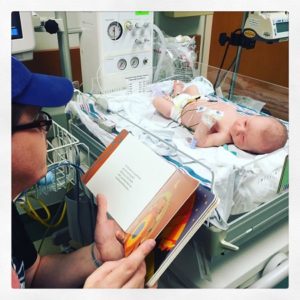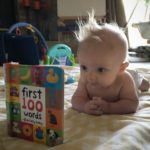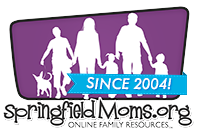 The American Academy of Pediatrics states that 35 percent of American children start Kindergarten without good language skills. Reading to your baby helps develop these skills. Start reading to your baby as soon as you get home from the hospital. It calms him, starts a routine and promotes bonding.
The American Academy of Pediatrics states that 35 percent of American children start Kindergarten without good language skills. Reading to your baby helps develop these skills. Start reading to your baby as soon as you get home from the hospital. It calms him, starts a routine and promotes bonding.
If you read and talk to your child every day, he will hear 32 million more words by age four than a child whose parents have not done this.
These words are building blocks for learning and reading. When you read to your baby:
- He hears many words.
- He learns how to make sounds for each word.
- She soon begins to understand the meaning for each word.
- He learns the feelings behind the words.
- You positively affect her IQ.
- You provide comfort.
- Reading can soothe a fussy baby.
- You promote a bond between you and your baby. Your baby loves to hear your voice. He wants to feel you close to him.
- She learns social skills.
- You help him imagine.
- He learns how to listen.
- You and your baby
 connect emotionally.
connect emotionally. - She will gain skills that help her score higher on standard tests when she reaches age three.
Reading together with your baby is simple. It takes no special skills. However, reading to a baby is different than reading to an older child.
Learning involves more than just hearing words. As you read, you and your baby respond to each other. You connect. Books on tape and TV lack this bond that babies needs to learn.
When you read to your baby, read only for a few minutes at a time, but read often. You can read anything at first, and as the child gets older read nursery rhymes or child songs. As you’re reading, hold your child and make eye contact as you read and talk. Read with feeling; vary your tones and exaggerate sounds. Finally, point to pictures and let your child touch the book as you read.
Submitted by Parent Help Line with St. John’s Children’s Hospital.











